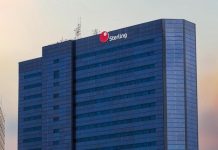🌿 Ruzu Non-Alcoholic Herbal Bitters
Ruzu Non-Alcoholic Herbal Bitters is a natural health supplement specially formulated to:
- ✅ Promote general wellness
- ✅ Detoxify the body
- ✅ Support the treatment of various ailments
Made from a powerful blend of 100% organic and medicinal herbs, Ruzu is completely alcohol-free, making it ideal for:
- 👪 All age groups
- 🌱 Health-conscious individuals
- 🌿 Anyone seeking non-alcoholic herbal remedies
Whether you're looking to boost your vitality, cleanse your system, or support healing the natural way, Ruzu Bitters offers a trusted herbal solution.
The Federal Competition and Consumer Protection Commission (FCCPC) has conducted a survey that links the recent surge in food prices across Nigeria to two key factors: insecurity and the removal of government subsidies.
The survey, which targeted traders in major food markets nationwide, highlights the disruption caused by ongoing security challenges in food-producing regions.
Speaking during a tour of some major markets in Lagos State, including Mile 12 International Market, Ketu, and Ilepo Market, on Wednesday, the Head of FCCPC in the state, Mrs Sussie Onwuka, explained that the exercise was a fact-finding mission.
She added that there had been constant complaints by Nigerians about the constant hike in the prices of food commodities in the market, adding that the government was concerned.
“And because of our mandate to protect the consumer and to also advise the government, we have to conduct an investigation and come up with a report that would help the government put good policies in place, so we have to come out to the source and talk to the market executives,” Onwuka said.
Read Also: Your economic policies impoverishing Nigerians, Afenifere tells Tinubu
She also suggested that these disruptions are hindering the transportation of essential goods, leading to a decline in supply and a subsequent rise in prices.
According to her, the major complaint by traders was insecurity in the country.
“From what the people we have spoken to said, the major complaint is the insecurity in the country. The farmers can’t go to the farm; fuel scarcity has made the cost of transportation go up, and the costs are added to the cost of the goods.
“And they complained about rain affecting grain. There are many reasons attached to the constant hike in the prices of food commodities,” she asserted.
Furthermore, the FCCPC survey points to the government’s removal of subsidies on certain food items as another contributing factor. This policy shift has likely increased production and transportation costs for vendors, who are passing these expenses on to consumers.
The National Bureau of Statistics recently reported a national food inflation rate of 40.53% at the end of April 2024. This alarming figure underscores the urgency of addressing the factors identified by the FCCPC.
What to Watch:
• Government Response: It remains to be seen how the government will address the FCCPC’s findings. Potential policy changes could include increased security measures in food-producing areas or the reintroduction of targeted subsidies for essential food items.
• Consumer Impact: The continued rise in food prices is likely to have a significant impact on household budgets, particularly for low-income families. Further research is needed to assess the full scale of this impact.
The FCCPC’s survey provides valuable insights into the current food price crisis in Nigeria. However, a more comprehensive understanding may require further investigation into other potential contributing factors, such as global food price fluctuations, currency exchange rates, and domestic agricultural productivity.
If you like what we do, and are ready to uphold solutions journalism, kindly donate to the Ripples Nigeria cause.
















